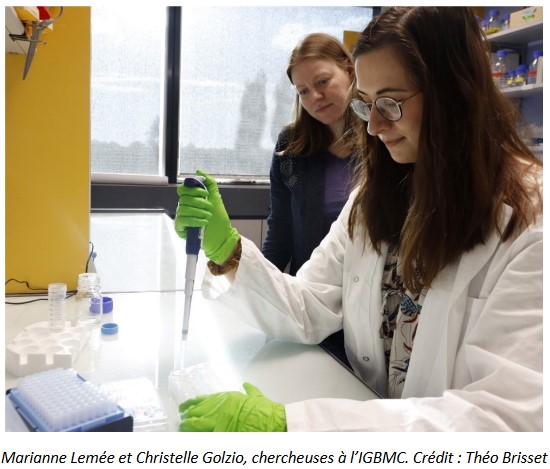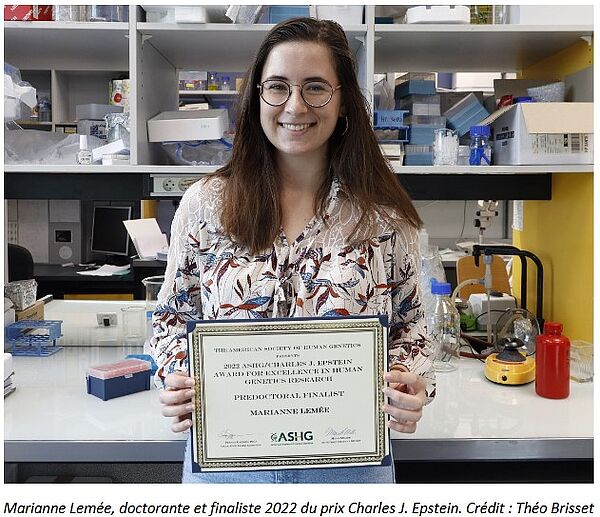Marianne Lemée is one of the 18 finalists for the Charles J. Epstein Prize for Excellence in Human Genetics Research. The first French candidate to be selected since 2010, the doctoral student in the team of Christelle Golzio, Inserm research officer, will present her research project at the final on 25 October at the Convention Center in Los Angeles. This prestigious prize rewards promising research by doctoral and post-doctoral and post-doctoral students from around the world.
Prestigious award for promising research in human genetics
Coordinated by the American Society of Human Genetics (ASHG), the Charles Epstein Award for Excellence in Human Genetics Research recognises particularly promising projects by doctoral and post-doctoral students. A total of 18 finalists are selected each year, 9 PhD students and 9 post-docs, with 3 winners in each category.
This prize is a sign of good fortune for the winning scientists, who then go on to recognised research in the field of human genetics. There have been no French finalists for this prize since 2010.
Marianne Lemée, finalist for her research on the regulation of neurodevelopment in autism spectrum disorders
Marianne Lemée arrived at the IGBMC in January 2020 as a Master 1 student and began her thesis on the identification of genes linked to autism in September 2021 at the IGBMC, within the IMCBio programme. This project aims to identify the gene responsible for neurodevelopmental anomalies linked to chromosomal rearrangements on chromosome 1. These abnormalities are responsible for the 1q21.1 syndrome which induces autistic traits in patients who are carriers.
More specifically, Marianne Lemée's research has shown that deregulation of the CHD1L gene, present in the region of the 1q21.1 syndrome, induces neurodevelopmental abnormalities. This research reveals a new key role for this gene during cortical development. The project now focuses on elucidating the regulatory mechanisms of CHD1L in human cell models mimicking neurogenesis.
All of this work will help improve the management and diagnosis of patients with 1q21.1 syndrome, as well as exploring new therapeutic avenues and better understanding the genetics of autism, which affects many people around the world.
Selected as one of the 18 finalists from over 700 applications received, Marianne Lemée has already received a $1,000 grant from the ASHG and an invitation to the conference to be held from 25 to 29 October at the Los Angeles Convention Center. She will defend her project during the final at the Los Angeles Convention Center, which will take place on 25 October 2022.



